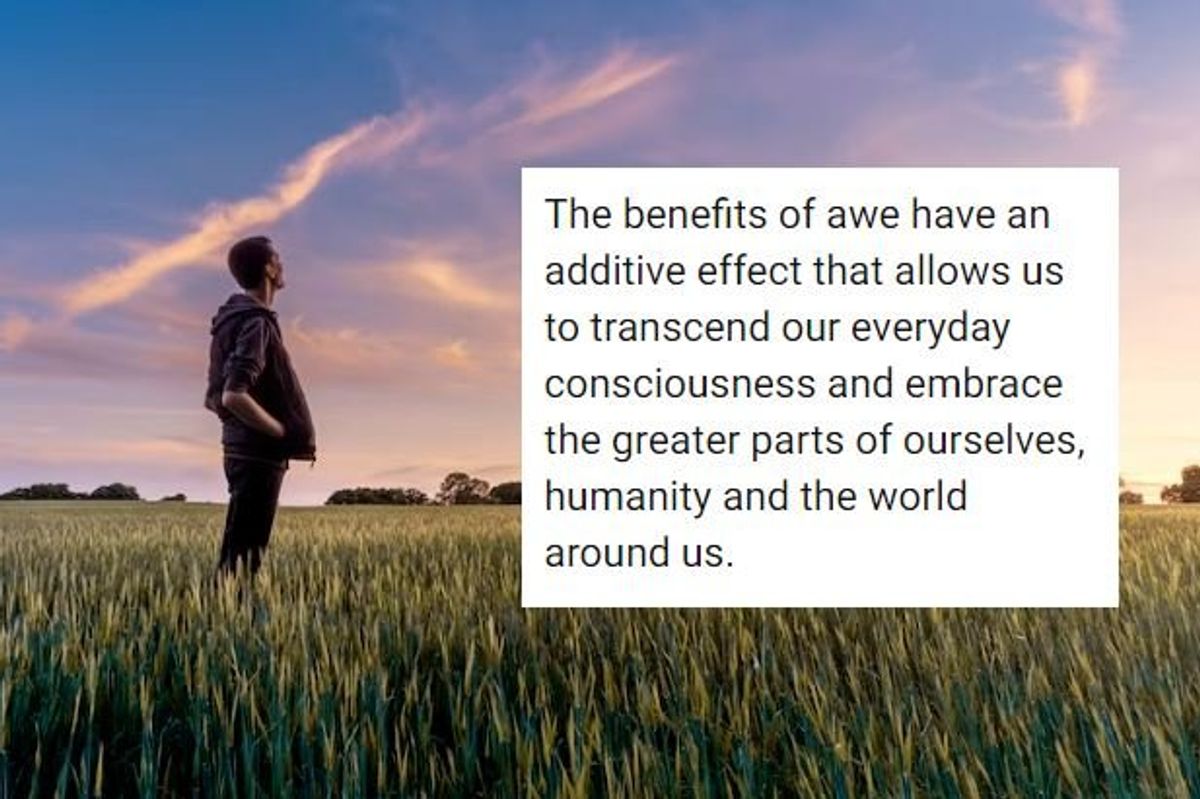
The exhilaration of a rock concert. The feeling of deep serenity you experience during a religious ceremony. That sense of connectedness you get while walking through a dense forest. The lightness that flows through your body while dancing and the dissolution of the ego you experience on psychedelics. These are all experiences that give us the feeling of awe.
Most of us love having at least a few of these experiences and believe they help us grow. But now, a team of psychologists has explained why cultivating a sense of awe can benefit our minds and bodies and how we can create these experiences ourselves.
Maria Monroy and Dacher Keltner posit that a sense of awe can help solve the crises of individualism, excessive self-focus, loneliness and a culture of cynicism, and can even improve our physical health. They explain it in a research article titled “Awe as a Pathway to Mental and Physical Health.”
Keltner argues that cultivating a sense of awe is an essential addition to modern mindfulness practices because it’s one of the few things that take the focus off the self.
According to the researchers, awe engages five process shifts in the body and mind. Awe alters our neurophysiology by releasing oxytocin, also known as “the love hormone,” and elevates vagal tone, which relieves stress.
It also reduces focus on the self, lowering anxiety and aggressiveness while minimizing body image issues. It makes us more prosocial, so we’re more open to cooperation, sacrifice and sharing. Further, awe engenders a feeling of common humanity while elevating a person’s sense of meaning.
“Meaning, or sense of purpose, is found in making sense of life events, finding connections between current events and the past, and one’s values and social relationships,” Monroy and Keltner write.
Some argue that one of the greatest obstacles to happiness in the modern world is a crisis in meaning. Maybe a bit more awe is the secret ingredient we all use to be happier?
So how do we get out there and experience the life-changing benefits of awe?
The writers say there are five different ways that people commonly experience awe: nature, spiritual engagement, music, dance, and psychedelics. That could be why people who go to raves in the forest and dance through the night often experience a lasting feeling of transcendence.
The benefits of awe have an additive effect that allows us to transcend our everyday consciousness and embrace the greater parts of ourselves, humanity and the world around us.
“Experiences of awe counter the cynicism of our times as well, sharpening our awareness of the moral beauty of others— the ordinary kindness, courage, and selflessness of our fellow humans, and our capacity for overcoming extraordinary challenges,” Keltner writes in The Guardian.
The researchers’ conclusion does a great job of packaging a group of experiences that all solicit similar feelings and then tying them to measurable, practical benefits. They make an excellent case for all of us to have regular experiences of awe—whether singing in church or dancing at 3:00 a.m. at a festival—and to share them with the rest of humanity.
